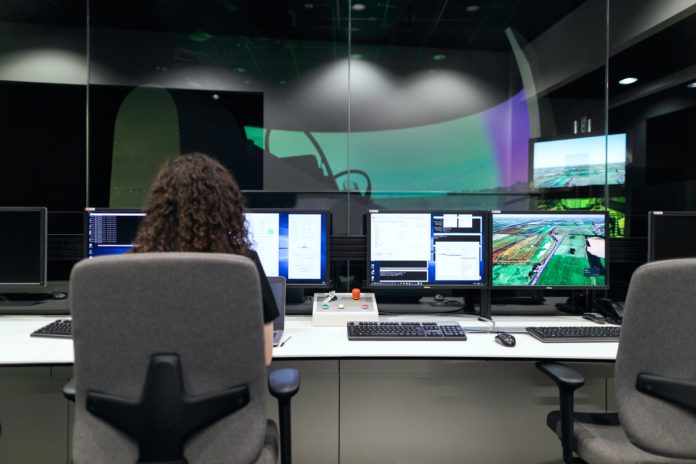As the world enters into the third year of living with the pandemic, the importance of digital technology to maintain our work and lives has never been clearer. We’ve collected a range of technology predictions for businesses navigating the year ahead.
IT and business strategy
BizOps
Digitalisation and elevating business strategy go hand-in-hand. The pandemic has accelerated the adoption of BizOps, the strategic direction to unify the information flow from different business functions like sales, marketing and customer service, so that decision making is not done in silos, among businesses. 2022 is seemingly the year where it will be utilised at a strategic level to optimise internal operations. As technology becomes a primary driver of growth, rather than being an afterthought, the importance of BizOps teams shall only increase further.
While companies have already adopted the BizOps model, they will soon leverage it to gain a better competitive advantage to improve customer services and create better customer experiences. Given the pace at which brands operate today, BizOps teams will complement business teams and IT teams to manage internal changes more smoothly and include customers into these positive changes.
– Gibu Mathew, VP and GM APAC, Zoho Corp
Hybrid multicloud
By 2023, 40% of the Forbes Global 2000 will reset their cloud selection processes to focus on business outcomes rather than IT requirements. One of the biggest challenges for IT in this transition will be supporting the organization’s business strategy via hybrid multicloud, while managing increased complexity.
Over the next decade, hybrid multicloud will play a prominent role in determining how organizations advance their digital-first strategies and consume IT Infrastructure as a Service. Digital leaders who overcome cloud, data and ecosystem complexity through automation, AI/ML, APIs and edge services will gain a significant competitive edge.
– Leanne Starace, SVP, Global Solutions Architects
Technologies and competencies
Artificial Intelligence and Machine Learning (AI/ML)
Data at the edge is exploding as 5G and IoT technologies flourish, driving a global edge computing market that’s projected to reach $43.4 billion by 2027. Information from autonomous vehicles, drones, surveillance cameras and medical IoT devices will require real-time AI/ML model inferencing at the edge.
Over the next decade, AI/ML will become pervasive in every aspect of human life: AI-powered robots will provide services from growing and transporting food, to delivering groceries, to cooking. Advances will be made in the arena of legal/public policies to better address the ethics of AI/ML with respect to fairness, explainability and privacy protection.
– Kaladhar Voruganti, Senior Fellow with the Office of the CTO, Equinix
Unified Technology Platforms
As organisations accelerate digital transformation, they are adopting unified technology platforms to ensure a seamless shift. Over a landscape of integrated best-of-breed applications, unified platforms will become the norm as they serve as a one-stop-shop that allows businesses to perform several functions, like cross-referencing customer context, automation, gathering and analysing customer data, within a single platform.
In the long term, a seamless unified platform mitigates the potential technology and financial risk of patch-work implementation of applications from different solution providers.
– Gibu Mathew, VP and GM APAC, Zoho Corp
Future of Intelligence (FoI)
As COVID-19 continues to test organizations’ digital resilience, investments in enterprise intelligence will be crucial for companies to navigate and thrive in the ever-growing digital economy. The domain of Future of Intelligence (FoI) studies the role of intelligence in displacing “traditional” business models and practices. The grand vision of success in this domain is for Future Enterprises (FE) to learn, adapt and scale synthesized and harmonized information, giving them a sustainable competitive advantage.
– IDC
Future of Intelligence is one of the nine digital priorities that will enable organizations to operate in the next economy. The Asia/Pacific region has both immense potential and a great number of challenges to overcome. Embedding intelligence into the way organizations run their businesses is the way forward
– Christopher Lee Marshall, Associate Vice President, IDC Asia Pacific
Cybersecurity
Cyberattacks are increasing sharply as the global pandemic continues, leading to a predicted cost of more than $6 trillion globally in 2021 and $10.5 trillion annually by 2025. Despite the risks, companies will continue to embrace cloud services and extend traditional network boundaries to employees and partners that are essential to building digital advantage.
As companies pursue their digital business models, cybercriminals continue to outpace the industry with their sophisticated attacks. Technology leaders must help their companies navigate today’s threats and balance the risks as they anticipate and stay ahead of what’s next.
– Michael Montoya, Chief Information Security Officer, Equinix
Sustainability
As global organisations commit to be carbon neutral, it has become a global challenge to ensure all their locations worldwide adhere to the same commitment. Progress can be seen in organisations’ commitments to limit the environmental impact of data centres and cloud activity, with providers looking to reduce IT component waste, better optimise data centre energy consumption and develop innovative, more-effective cooling systems.
Whilst implementing measures is critical, data centres must monitor their output across key environmental indicators such as power, water and carbon usage, keeping within suitable parameters. To have a sustainable model, the industry not only has to look at carbon and power efficiency, but also water unit efficiency for effective water cooling. Local government support is needed to ensure the availability of local energy grids to support the same cause, as with consumers who also need to play a part by being aware of the carbon footprint they create with every email, text and post on social media.
We expect to see a significant shift in the uptake of green technologies to meet the goal of converting to 100% renewable energy in the industry in the next few years. As more companies have a better understanding of the importance of technology and continue to embrace it wholeheartedly, we believe Asian businesses can lead the global charge in 2022 and beyond towards multi-cloud capabilities, more-effective data protection and sustainability.
– Lionel Legros, General Manager, Asia Pacific, OVHcloud
SMEs and Technology
SMEs will shift into growth mode with a strong focus on digitalisation. In 2021, small businesses accelerated their digital investments to survive prolonged COVID-19 pandemic restrictions. In 2022, they will take a more focused approach to digital adoption.
Some will look to digital tools to expand their customer base and facilitate relationships in the face of an evolving regulatory environment. Others will seek out technology that enhances innovation and supports the development of new products and services. Many small businesses will focus on technology that improves operational processes.
Additionally, SMEs will tap into data to solve customer pain points. Recent studies show that Singapore SMEs have yet to tap into the power of data to help inform and, or validate their business plans and strategies. This will most certainly change, with affordable and scalable cloud tools empowering businesses to double down on their data strategies in 2022. Having a bird’s eye view of its cash flow and financial health allows the business to allocate its budget and investments effectively, as well as plan for upcoming international expansion.
Technology budgets will increase as more small businesses embark on digital transformation projects to accelerate their post-crisis recovery. According to IDC, at least 20 percent of small businesses globally will cease operations by 2025 if they don’t digitise fast enough.
– Kevin Fitzgerald, Managing Director, Xero Asia














